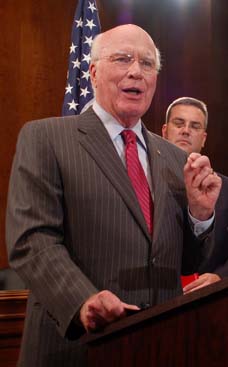
Before you swear in, you'll get to hear your Country Director rattle off a laundry list of offenses that you can be AdSep'd for. It includes things like Riding your bike without a helmet, Failing to accomplish anything, Driving a car (or plane or motorcycle), Taking illegal drugs, Impregnating a local woman, and Conduct unbecoming a PCV. Some of these have discretion built in, on the part of the Country Director; others are a zero-tolerance policy. Some shenanigans will actually get you MedSep'd instead of AdSep'd; alcohol abuse, for example, is considered a medical problem. Pregnancy, if carried to term, falls under the medical umbrella. But MedSep'd or AdSep'd, you're still going home. The only difference lies in how it looks to future employers.
Peace Corps Volunteer "Innocent A-Blogged" writes: Today I'm going to address the flipside: ending your Peace Corps Service. Turns out it can end in one of four ways...
2.10.2009
2/9/2009 Leaving Peace Corps Service
I've spent a few days talking about getting into Peace Corps. Today I'm going to address the flipside: ending your Peace Corps Service. Turns out it can end in one of four ways...
1. COS - Close of Service
Let's start with the happiest one: COS-ing. (Yes, in our endless love of acronyms, we've actually turned these into verbs, to wit, To COS, with the letters pronounced in full: to see-oh-ess.) In order to COS, you must have served successfully in your host country for two full years since swearing-in. The COS process starts about four months before your scheduled departure, with COS Conference. You gather with all of your stage-mates, who you haven't seen en masse since Mid-Service Medicals, at your country headquarters. You hear from your Program Staff and your Country Director about wrapping up your projects, saying farewell to your community, planning for post-Peace Corps life, and generally finding ways to leave with success and closure. This conference lasts about a week, and then you return to your home village. For your final three months of service, you're not allowed to take any vacation days; it's time to hunker down and tie all your work off with a bow. Once you've said your farewells to your host family and neighbors, you head back to headquarters for a final goodbye week (and the requisite final goodbye medical exams). And then your service is closed; you've COS'd. Peace Corps buys you a plane ticket home (which most PCVs choose to cash in, preferring to find a dirt-cheap multi-leg flight and use the balance of funds to travel for a bit). COS-ing is the fate that most of us hope for.
2. ET - Early Termination
Some PCVs don't choose to stay the full two years. Countless factors contribute to this. Perhaps their bodies never adapted to the food/parasites/bugs, and the constant sickness wore them out. Perhaps someone back home needed them more than they'd anticipated. Perhaps something awful happened and they wanted to run away. Perhaps there was no productive work in their site and they thought they'd be more useful to the world back in the US. There are as many reasons to ET as there are Volunteers - more, actually, since it usually takes more than one reason to get you to go. But for whatever combination of causes, you decide to terminate your service early, and go home. Folks outside the Peace Corps vernacular tend to refer to this one as "quitting" or "giving up", but I challenge that characterization. Most of us knew what we were getting into when we joined Peace Corps, and prepared ourselves for the challenge...but the unexpected can catch up to anyone. It's less common than you might think - out of the 26 Environment PCTs who showed up on March 1st last year, only 1 of us has ET'd. (Knock on wood.)
3. MedSep - Medical Separation
Peace Corps also reserves the right to send you home. If your body succumbs to something that the local health care providers can't accommodate, they'll ship you back to the US in a "MedEvac", aka Medical Evacuation. But that's a temporary state of affairs. If you're once again hale and hearty within 45 days, you can return to country and return to service. But you only get 45 days. If it takes more than six weeks to make you all better, you lose the chance to return, and you're medically separated from service - MedSep'd. Over your vehement protests, in some cases. I've had several friends ripped out of their service, against their wishes, because their bodies had failed them. Liver failure, kidney failure, even long-dormant genetic problems that had lain dormant until the stress of the Peace Corps lifestyle caused them to flare to life. Of the 26 in my cohort, one was MedSep'd quite early on. Of the 59 Trainees that went through stage together - 26 Environment Sector and 33 Health Sector - we've lost almost half a dozen to MedSeps. The most recently MedEvac'd was my friend Casey, but I'm still hoping that he'll make it back within the 45-day window. He tells his story here. Also, if you refuse treatment by the Peace Corps Medical Officers, they can send you home. They enforce this with especial vigor in malaria countries; if you don't take your malaria prophylaxis (preventative medicine) every single day, and they find out, they'll MedSep you. When I first heard about this happening, about a year before I joined Peace Corps, my reaction was, "Peace Corps can fire you??" And they can, but getting MedSep'd isn't considered getting fired. That's reserved for...
4. AdSep - Administrative Separation
...getting AdSep'd. This is Peace Corps' big gun. Before you swear in, you'll get to hear your Country Director rattle off a laundry list of offenses that you can be AdSep'd for. It includes things like Riding your bike without a helmet, Failing to accomplish anything, Driving a car (or plane or motorcycle), Taking illegal drugs, Impregnating a local woman, and Conduct unbecoming a PCV. Some of these have discretion built in, on the part of the Country Director; others are a zero-tolerance policy. Some shenanigans will actually get you MedSep'd instead of AdSep'd; alcohol abuse, for example, is considered a medical problem. Pregnancy, if carried to term, falls under the medical umbrella. But MedSep'd or AdSep'd, you're still going home. The only difference lies in how it looks to future employers.
In writing this, I have conflated separation from service with going back to the US. In point of fact, as far as I understand it, Peace Corps can't force you to leave the country. They can't deport you if you haven't committed a crime. They can strongly encourage you to go, and in some cases I've heard, it sounded pretty forcible, but there does exist an option known as "Field Separation". If you accept a Field Separation, you're no longer a PCV - no longer associated with Peace Corps at all - so you get no living allowance, no stipend, no right to attend future Peace Corps gatherings, etc, but you are still allowed to remain in-country. Volunteers who have married Host Country Nationals and then chosen to ET will often accept a Field Separation.
So these are the ways your service will end. We all start off hoping for a successful COS, but sometimes things intervene. Peace Corps understands that, and therefore created all these different mechanisms. (...not with a bang, but a whimper...)













